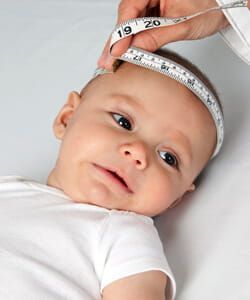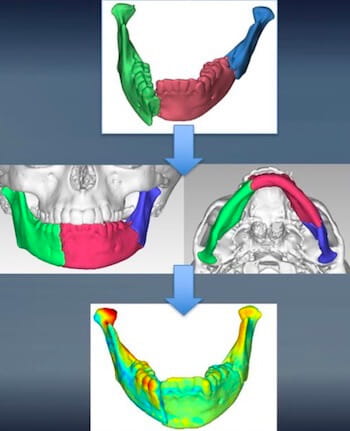The Division of Pediatric Plastic Surgery at UPMC Children’s Hospital of Pittsburgh is a national leader in craniofacial and pediatric plastic surgery research. From machine learning and the use of 3D-printed models in education, to multi-center clinical collaborations and leading-edge laboratory investigations, our research continually advances the field and helps us to improve the care of young patients with congenital or traumatic deformities.
With one of the country’s most extensive pediatric plastic surgery research programs, funded in-part by the National Institutes of Health, National Science Foundation, and the Department of Defense, our scientists and clinicians are engaged in more than 60 ongoing research projects at any given time. Our major focus areas include cranial development and healing, cleft treatment and outcomes, pediatric facial trauma, hand injury and treatment, and practice improvement measures.
Developmental and Genetic Conditions
 We are leaders in research on craniosynostosis, a condition where the bones of a baby’s skull fuse too soon, potentially leading to abnormal skull and brain growth and problems with breathing, speech, hearing, or eating. To help advance research in this area, we are a founding member of the Synostosis Research Group, or SynRG, the largest multi-center consortium focused on prospectively evaluating the diagnosis and management of patients with craniosynostosis. By combining and evaluating patient data, treatment trends, findings from clinical trials, and observational studies, SynRG is identifying opportunities to optimize care and improve outcomes.
We are leaders in research on craniosynostosis, a condition where the bones of a baby’s skull fuse too soon, potentially leading to abnormal skull and brain growth and problems with breathing, speech, hearing, or eating. To help advance research in this area, we are a founding member of the Synostosis Research Group, or SynRG, the largest multi-center consortium focused on prospectively evaluating the diagnosis and management of patients with craniosynostosis. By combining and evaluating patient data, treatment trends, findings from clinical trials, and observational studies, SynRG is identifying opportunities to optimize care and improve outcomes.
Meanwhile, our division’s researchers are exploring the possibilities for deep machine learning technology to better understand the shape differences that occur in patients with craniosynostosis with greater insight than possible with human evaluation. Such analysis may someday help clinicians to better counsel patients and help surgeons to make more informed decisions about treatment.
For complex congenital hand conditions, our advances in treatment have been augmented by basic science research leading to novel approaches that optimize surgical outcomes.
Fractures and Trauma
As a long-standing Level I Regional Resource Pediatric Trauma Center, UPMC Children’s Hospital has developed the largest pediatric patient trauma database in the country, including more than 5,000 patient cases. Our researchers use this resource to study pediatric facial trauma and facial fractures to better understand how to treat patients and address issues related to their injuries. This gives us tremendous insight into comorbidities associated certain conditions and deeper understanding of which patients will do the best with which types of interventions – surgical, or otherwise.
 In the treatment of facial fractures, our researchers have pioneered the use of 3D reconstructed jaw fragments and 3D printed models for patient-specific plate contouring prior to surgery, helping to improve the precision of repair and reduce the length of what has otherwise been a tedious surgical process.
In the treatment of facial fractures, our researchers have pioneered the use of 3D reconstructed jaw fragments and 3D printed models for patient-specific plate contouring prior to surgery, helping to improve the precision of repair and reduce the length of what has otherwise been a tedious surgical process.
Significant improvement in the care of children with congenital craniofacial abnormalities, nerve injuries, and bone development issues only comes from strong and collaborative translational research – the kind found at UPMC Children’s today.









 We are leaders in research on craniosynostosis, a condition where the bones of a baby’s skull fuse too soon, potentially leading to abnormal skull and brain growth and problems with breathing, speech, hearing, or eating. To help advance research in this area, we are a founding member of the Synostosis Research Group, or SynRG, the largest multi-center consortium focused on prospectively evaluating the diagnosis and management of patients with craniosynostosis. By combining and evaluating patient data, treatment trends, findings from clinical trials, and observational studies, SynRG is identifying opportunities to optimize care and improve outcomes.
We are leaders in research on craniosynostosis, a condition where the bones of a baby’s skull fuse too soon, potentially leading to abnormal skull and brain growth and problems with breathing, speech, hearing, or eating. To help advance research in this area, we are a founding member of the Synostosis Research Group, or SynRG, the largest multi-center consortium focused on prospectively evaluating the diagnosis and management of patients with craniosynostosis. By combining and evaluating patient data, treatment trends, findings from clinical trials, and observational studies, SynRG is identifying opportunities to optimize care and improve outcomes. In the treatment of facial fractures, our researchers have pioneered the use of 3D reconstructed jaw fragments and 3D printed models for patient-specific plate contouring prior to surgery, helping to improve the precision of repair and reduce the length of what has otherwise been a tedious surgical process.
In the treatment of facial fractures, our researchers have pioneered the use of 3D reconstructed jaw fragments and 3D printed models for patient-specific plate contouring prior to surgery, helping to improve the precision of repair and reduce the length of what has otherwise been a tedious surgical process.